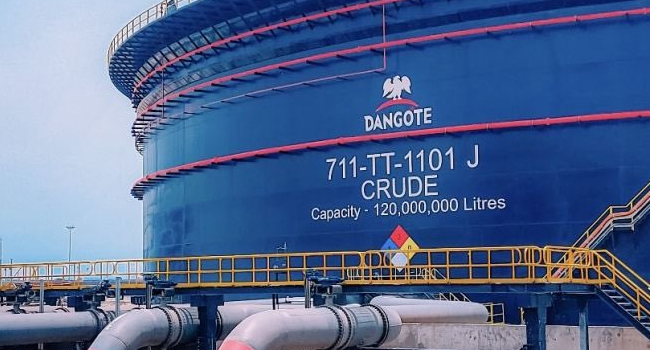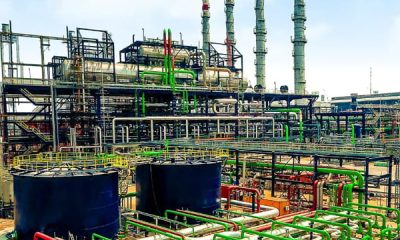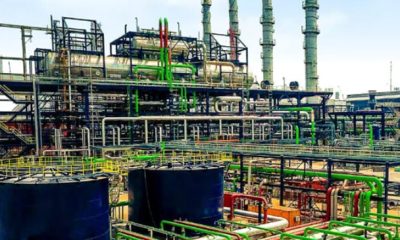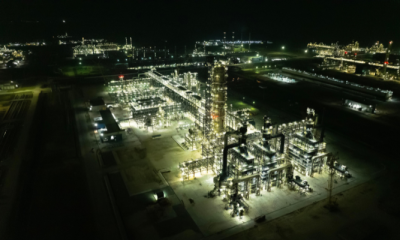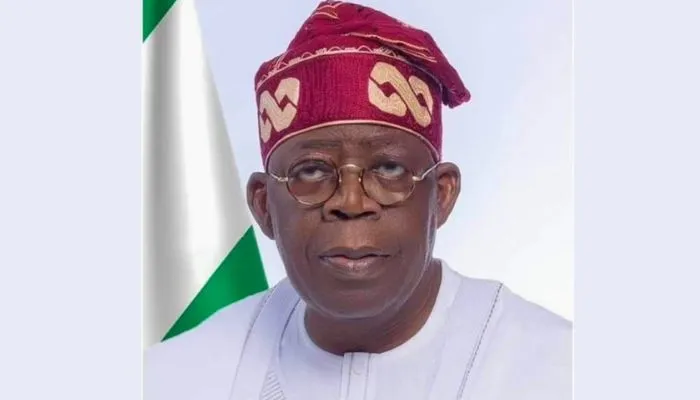Oil marketers have clarified that refined petroleum products from the $20bn Dangote Petroleum Refinery are to be sold in naira and not in the United States dollar as speculated in some quarters.
Dealers in the downstream oil sector also stated that the registration process for marketers at the refinery was still ongoing, as many operators had continued to register with the plant.
It was further gathered that officials of the Nigerian Midstream and Downstream Petroleum Regulatory Authority were meeting with the management of the refinery to perfect the pricing template for products produced by the facility.
On January 12, 2023, the Dangote Petroleum Refinery announced the commencement of production of Automotive Gas Oil, also known as diesel, and JetA1 or aviation fuel.
The President, Dangote Group, Aliko Dangote, had in a statement issued by the firm, said, “We have started the production of diesel and aviation fuel, and the products will be in the market within this month once we receive regulatory approvals. This is a big day for Nigeria. We are delighted to have reached this significant milestone.
“This is an important achievement for our country as it demonstrates our ability to develop and deliver large capital projects. This is a game changer for our country, and I am very fulfilled with the actualisation of this project.”
Following that announcement, The PUNCH exclusively reported on January 15, 2023, that seven major oil marketers in Nigeria had registered with the refinery for the lifting and distribution of refined petroleum products produced by the plant.
The seven major marketers include 11 Plc, Conoil Plc, Ardova Plc, MRS Oil Nigeria Plc, OVH Energy Marketing Limited, Total Nigeria Plc and NNPC Retail.
It was also reported that the refinery would supply fuel to about 150,000 retail outlets operated by the Independent Petroleum Marketers Association of Nigeria following a meeting between the management of the refinery and executives of IPMAN.
But some Nigerians have expressed concern over the supply of crude to the plant in dollars, and whether this could make the managers of the refinery to sell refined products in dollars, since the plant is located in the free trade zone.
The Dangote Petroleum Refinery and Petrochemical Project, a subsidiary of Dangote Industries Limited, is a 650,000 barrels per day crude oil refinery, located in Dangote Industries Free Zone, Ibeju-Lekki, Lagos, Nigeria.
Responding to the an enquiry on whether the plant would dispense its products in dollars, the National Public Relations Officer, IPMAN, Chief Ukadike Chinedu, admitted that it was true that crude oil, being an international commodity, was sold to the plant in dollars.
He, however, said that this would not make the plant to sell refined petroleum products to the Nigerian market in dollars, stressing that other businesses operated in Nigeria by Africa’s richest man were carrying out their transactions in naira.
“The legal tender in Nigeria is the naira. The cement being sold by Dangote Cement is done in naira, not in dollar. The spaghetti and other essential commodities that he is involved in are all sold in naira.
“So why should one think that he will now sell fuel in dollars? Except for the offshore sales for those who want to move the refined products out of Nigeria using vessels to transport them to other countries. Such customers may get theirs in dollar equivalent,” Ukadike stated.
He, however, noted that another important thing was for the Nigerian government to be able to close up the widening gap in the foreign exchange rate.
“If the exchange rate for the dollar is low, petroleum products would have been cheap in Nigeria, because the products are imported. So I believe that Dangote will definitely sell the products in our local currency, which is naira,” he stated.
On if marketers had been briefed on whether products would be sold in naira or dollars, considering the fact that crude was supplied to the plant in dollars, Ukadike replied, “No, the pricing template has not come out. What is going on now is legislation. The template is not yet out.
“And I must state that there is no way the NNPC will bring out its template in naira and Dangote will bring out its own in dollars. It is not possible! So for the cost of their products, I think they are still trying to fix the prices with the regulatory agencies of the Federal Government.
“They will also look at the feasibility of the market and other factors, before announcing their prices for diesel and aviation fuel, which are the products they are producing now. So the price is not out, for once it is out, you’ll be informed.”
Ukadike also stated that more oil marketers were registering with the refinery, adding that IPMAN had been at the forefront of the registration process.
“More applications for registration are being sent to the refinery by marketers and I think the process has been ongoing for some time now. It is a good thing for the country to have a refinery that refines its crude domestically,” the IPMAN official stated.
Another major marketer confirmed that the pricing template for refined products from the facility has not been released yet, but noted that there had been a series of meetings with the regulators on this.
Asked whether the pricing template for refined products had been released, the dealer, who pleaded not to be named due to lack of authorisation, replied, “No, not yet. We have not received any template yet, not to my knowledge.
“But it is possible that the template should be out soon because various meetings by officials of the refinery with dealers and regulators have been ongoing lately. The meetings are to give insights about activities at the plant. And I believe the template is going to be in naira.”
The Dangote Petroleum Refinery is an industrial plant that transforms crude oil into various usable petroleum products such as diesel, gasoline, jet fuel and kerosene.
Dangote Petroleum Refinery with a capacity to refine 650,000 barrels of crude oil per day covers an area of approximately 2,635 hectares in the Lekki Free Trade Zone in Lagos.
The refinery has so far received six million barrels of crude oil at its two SPMs located 25km from the shore. The first crude delivery was done on December 12, 2023, and the 6th cargo was delivered on January 8, 2024.
The refinery can load 2,900 trucks a day at its truck-loading gantries. The products from the refinery will conform to Euro V specifications, according to the firm.
“The refinery design complies with the World Bank, US EPA, European emission norms, and Department of Petroleum Resources emission/effluent norms, employing state-of-the-art technology,” the company had stated in statement.

 News3 years ago
News3 years ago
 Entertainment2 years ago
Entertainment2 years ago
 News3 years ago
News3 years ago
 Privacy3 years ago
Privacy3 years ago
 Sports2 years ago
Sports2 years ago
 Entertainment2 years ago
Entertainment2 years ago
 News3 years ago
News3 years ago
 Opinion3 years ago
Opinion3 years ago
